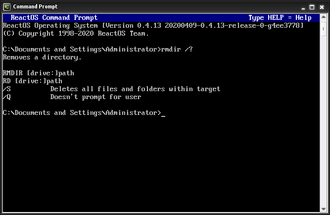Introduction WireGuard vs OpenVPN
WireGuard vs OpenVPN, When you sign up for a VPN, you’ll often see a choice of protocols – the rules that define how your encrypted tunnel is built. Two of the most popular today are OpenVPN and WireGuard.
Both protect your data, but they work in very different ways. This article compares them side by side – speed, security, reliability, and future-proofing – so you know which one is right for your needs.
1. What is a VPN Protocol?
Think of a VPN protocol as the blueprint for how your secure tunnel is built. It decides:
- How your data is encrypted.
- How your device and the VPN server communicate.
- How reliable and fast the connection will be.
👉 Without the protocol, there’s no tunnel.
2. What is OpenVPN?
OpenVPN has been the backbone of VPNs for over 20 years.
- Open-source: its code is public, reviewed by experts worldwide.
- Flexibility: works on almost any platform – Windows, macOS, Linux, routers, even IoT devices.
- Encryption: typically uses AES-256, considered military-grade.
- Protocols: can run on TCP (stable) or UDP (faster).
📌 Strengths
- Highly secure and trusted.
- Proven track record.
- Compatible with almost everything.
📌 Weaknesses
- Complex to configure.
- Slower than newer options.
- Codebase is large (harder to audit).
3. What is WireGuard?
WireGuard is the new kid on the block, first released in 2016.
- Lightweight codebase: only ~4,000 lines of code (vs OpenVPN’s 100,000+).
- Encryption: uses modern algorithms like ChaCha20, considered faster and very secure.
- Performance: designed for speed and efficiency.
- Mobile optimisation: works brilliantly when switching between WiFi and mobile networks.
📌 Strengths
- Extremely fast.
- Simple, modern design.
- Easier to audit (small code).
📌 Weaknesses
- Newer → less battle-tested.
- Some privacy concerns: by default, servers need to store IPs temporarily.
- Not supported everywhere yet (though adoption is growing fast).
4. Speed Comparison
- WireGuard: regularly outperforms OpenVPN by 2–4x in benchmarks.
- OpenVPN: reliable, but encryption overhead slows things down.
👉 If your main concern is speed, WireGuard is the winner.
5. Security Comparison
- OpenVPN: Extremely secure when set up correctly. Its long history means vulnerabilities are rare and well-documented.
- WireGuard: Uses cutting-edge cryptography and a simpler design, which reduces attack surfaces.
👉 Verdict: Both are secure, but WireGuard benefits from modern cryptography while OpenVPN has a longer proven track record.
6. Compatibility
- OpenVPN: Works on almost every device and operating system.
- WireGuard: Still rolling out to all platforms, but now supported by most major VPN providers.
👉 If you need maximum compatibility (e.g., routers, legacy systems), stick with OpenVPN. For most modern devices, WireGuard works perfectly.
7. Privacy Considerations
- OpenVPN: Doesn’t require storing identifying data on the server.
- WireGuard: By default, stores some temporary IP information. Good VPNs mitigate this with “key rotation” and privacy patches.
👉 If anonymity is your top priority, OpenVPN may have the edge – but most reputable VPNs now handle WireGuard’s privacy concerns responsibly.
8. Use Cases – Which Should You Choose?
- For Speed & Mobile → WireGuard
- Gaming, streaming, switching between networks.
- For Privacy & Proven Security → OpenVPN
- High-security tasks, cautious users.
- For Legacy Devices → OpenVPN
- Old routers or systems where WireGuard isn’t supported.
- For the Future → WireGuard
- As adoption spreads, WireGuard is expected to become the default.
9. Quick Comparison Table
| Feature | OpenVPN | WireGuard |
|---|---|---|
| Release Date | 2001 | 2016 |
| Codebase Size | 100k+ lines | ~4k lines |
| Speed | Moderate | Very fast |
| Security | Proven, strong | Modern, strong |
| Privacy | Excellent | Good, some concerns |
| Compatibility | Almost everything | Growing rapidly |
| Best For | Security, legacy | Speed, mobile, future use |
Conclusion
OpenVPN and WireGuard are both excellent VPN protocols – but they serve slightly different needs.
- If you want speed and simplicity: go with WireGuard.
- If you value long-tested reliability or need older device support: choose OpenVPN.
In reality, the best VPN services let you pick between both, so you can adapt depending on whether you’re prioritising speed or security.
👉 Want to learn more about VPN technology? Read our complete guide: How VPNs Work: The Complete Technical Guide





